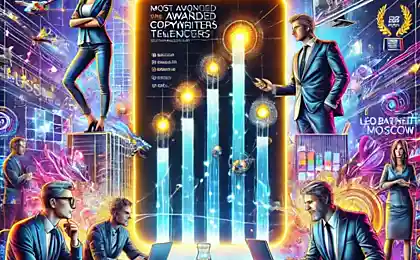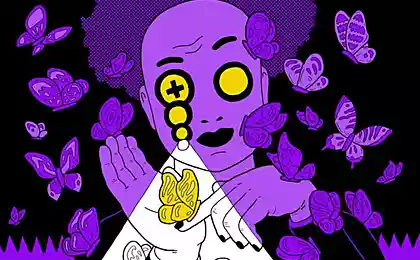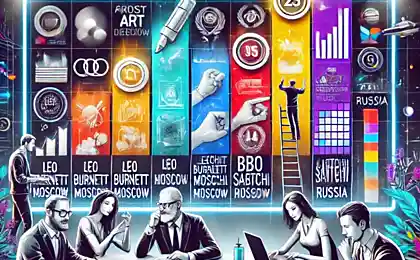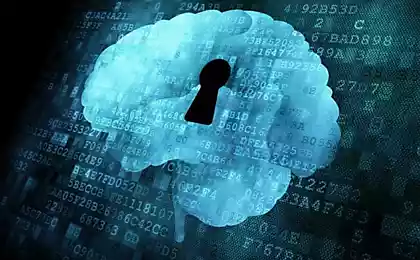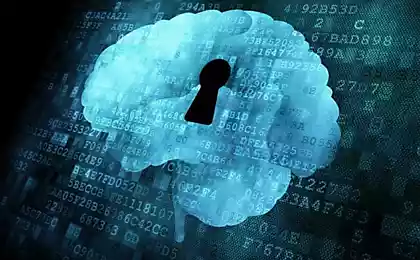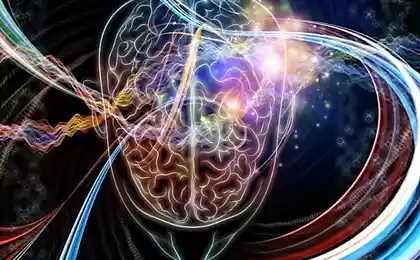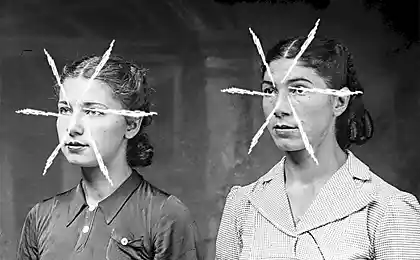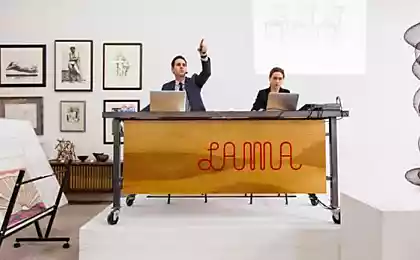507
The voice of the subconscious: what is the guide when making decisions
People often tend to overestimate their ability to talk sense. Psychological studies confirm our confidence in the ability to make informed choices — no more than illusion. Biologist Chris Paley in his book "never mind" talks about how we are misled by circumstances or our own prejudices. 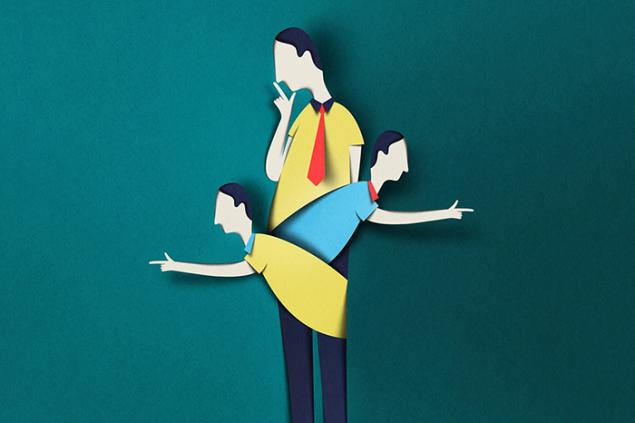
© Eiko Ojala
Some metaphors are remarkably persistent and are often associated with food. Perhaps you read this book, because I have a thirst for knowledge or an insatiable appetite for new thinking. You hope to gnaw granite science, and I'm not going to supply you with crude theories, which you will not be able to swallow. If the ideas contain enough food, the people, figuratively speaking, have the temperature. Someone will be able to warm soul next to us, but then the cool reception can leave us cold. Cools indifference, a cold stare or a frozen smile — all of this reveals not Sunny location. And when heavy relations are improving, there is a thaw. This metaphor is not just a fun verbal quirk — experiments show that it goes beyond words and affects our perception of the world.
In one study, first-year students recalled a situation when they were admitted or not admitted to the classes.Then, the experimenter informed the students that the technical staff wants to know what was the temperature in the room according to them.Students who remembered moments when they had a cold reception, assessed the temperature by about three degrees below what it was in reality. The same researchers found that the people were not allowed to do group work often prefer warm food, for example, hot coffee or soup than others.
And is there otherwise? Are we nicer to each other on Sunny days? Possible. In another experiment, the researcher encouraged the participants to hold a Cup of hot coffee or iced coffee while he wrote down their names and contact information. Shortly after that, the participants reported some information about an imaginary person and asked to assess his personality.Those who received a hot coffee described the person as more friendly than those who were given a Cup of iced coffee. The people who held something warm, much more willing to chose a gift for a friend than for ourselves: that is, they not only judge others as warmer people, but also themselves become "warmer".
Malice or accident?When we have someone convicted, we don't know what this man has harmed. We believe that it is more important to understand, whether he did it intentionally. Imagine that the mother has a painting paints the child, but upon returning, discovers that the paint smeared on the floor. Not enough for her to see what he's done to her son to decide whether he deserves a scolding, need to know, he spilled the paint on purpose or by accident when dipped in her brush.
If the mother considers that her dear son had deliberately turned the paint on the floor, that shouldn't matter, in the kitchen it happened or on the new carpet in the living room. The amount of damage is irrelevant to the fact of premeditation of the act.However, children's own experience, I know that an excuse like "Mommy, I didn't mean to!" were readily accepted when the damages were minimal. Not only my mother tend to assess the consequences, and then decide how much blame the attacker. We've all done it.
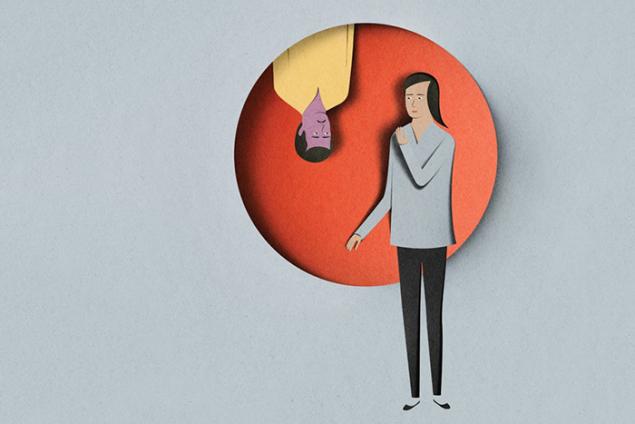
Consider the following scenario. The company boss is weighing all the "pros" and "cons" of starting a new program. His advisers say the project will increase profit, but it may worsen the environmental situation. The boss ponders this, puffing on his cigar, and then says: "I don't care what will happen to the environment. All I want is to make as much money as possible. Start of the project." His subordinates are removed, comply with the order, bring the company's profit and harm the environment. The question is not whether the project is acceptable, but whether the boss intentionally harmed the environment. After hearing a similar story, the vast majority of people answered this question positively.
Now consider a slightly different scenario. The same boss is considering another scheme. He reported that the project will bring money, but also help the environment. He States the same that in the first case: "I don't care what will happen to the environment. All I want is to make as much money as possible. Start of the project." The program is put into effect, makes a profit and improves the environmental situation. Did the boss favour of the environment consciously? Most people will give a negative answer to this question.
Lady Macbeth of our dayCleansing from defilement is the cornerstone of most religions. Christians wash away sins at baptism. The Sikhs also have cleansing, which they repeat, repent after committing another offense. Muslims wash before uttering a word of prayer. Jews are not allowed the unwashed in the courtyard of the temple, and the Hindu ablution of the whole body in the waters of rivers such as the Ganges, is a Central part of faith.
Literature is also seen in this connection. In one of the most famous scenes in "Macbeth" lady Macbeth desperately trying to wash my hands after the murder of Duncan. What about a modern, non-religious people of the XXI century? They probably do not associate the washing with the washing away of sins? In the experiment, which scientists have inspired Shakespeare's "Macbeth", participants were asked to think about their actions in the past.Some were asked to recall actions that they consider immoral and others moral actions. Participants then described the experienced feelings and emotions. At the end of the test, the volunteers received a small gift as a token of gratitude for participating in the experiment. They could choose either a pencil or a cleansing cloth.
Interestingly, two-thirds of the participants, talks about her immoral misconduct, chose napkins, while only one-third of participants with a history of the moral act made the same choice. None of the participants had no idea that the gift was part of the experiment and thatthe choice they made under the influence of memories.
Democracy is not childishFrom the early democracies there was the possibility that voters do not sufficiently understand their choice when you send the ballot in the ballot box. In "Republic" Plato argued that the most appropriate policy for people (obviously, philosophers) elect rarely. He compared leaders with sailors, who know nothing about naval matters, I believe that you can't teach, and driving a vehicle ways that have nothing to do with knowledge of navigation or seamanship.
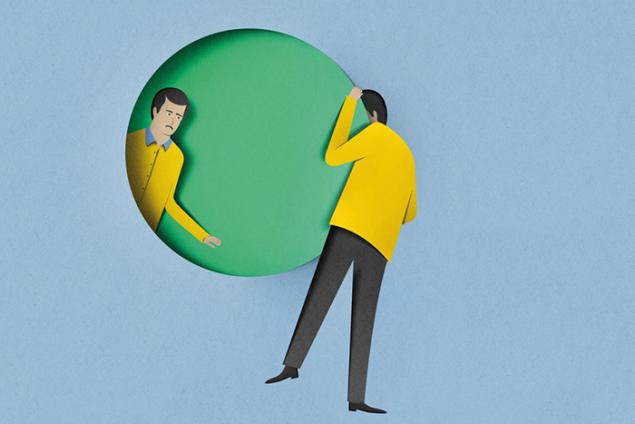
These arguments of Plato inspired scientists to conduct a study to determine whether children to be as successful or unsuccessful in choosing the leader as adults. The researchers asked 600 Swiss children aged five to thirteen, to imagine that they go on a journey and must choose a captain for your ship. Nominations were real opponents in the elections to the French Parliament the Captains, which were chosen by the children, won the elections in seven out of ten times.
Perhaps this study shows that our political consciousness develops earlier and need to lower the voting age the electoral law. So what did researchers learned about the political preferences of the children? Did the children that the candidate who reduces taxes, will be the best captain, because then the parents will give them more pocket money? Or the young voters would like to increase or decrease the budget for education?
In fact, based on these data, scientists are unable to answer any of these questions. They didn't tell the kids about the political or the navigation skills of captains. Photos of possible candidates, that's all the kids got to help in the decision and what exactly determined their choice.
Source: theoryandpractice.ru

© Eiko Ojala
Some metaphors are remarkably persistent and are often associated with food. Perhaps you read this book, because I have a thirst for knowledge or an insatiable appetite for new thinking. You hope to gnaw granite science, and I'm not going to supply you with crude theories, which you will not be able to swallow. If the ideas contain enough food, the people, figuratively speaking, have the temperature. Someone will be able to warm soul next to us, but then the cool reception can leave us cold. Cools indifference, a cold stare or a frozen smile — all of this reveals not Sunny location. And when heavy relations are improving, there is a thaw. This metaphor is not just a fun verbal quirk — experiments show that it goes beyond words and affects our perception of the world.
In one study, first-year students recalled a situation when they were admitted or not admitted to the classes.Then, the experimenter informed the students that the technical staff wants to know what was the temperature in the room according to them.Students who remembered moments when they had a cold reception, assessed the temperature by about three degrees below what it was in reality. The same researchers found that the people were not allowed to do group work often prefer warm food, for example, hot coffee or soup than others.
And is there otherwise? Are we nicer to each other on Sunny days? Possible. In another experiment, the researcher encouraged the participants to hold a Cup of hot coffee or iced coffee while he wrote down their names and contact information. Shortly after that, the participants reported some information about an imaginary person and asked to assess his personality.Those who received a hot coffee described the person as more friendly than those who were given a Cup of iced coffee. The people who held something warm, much more willing to chose a gift for a friend than for ourselves: that is, they not only judge others as warmer people, but also themselves become "warmer".
Malice or accident?When we have someone convicted, we don't know what this man has harmed. We believe that it is more important to understand, whether he did it intentionally. Imagine that the mother has a painting paints the child, but upon returning, discovers that the paint smeared on the floor. Not enough for her to see what he's done to her son to decide whether he deserves a scolding, need to know, he spilled the paint on purpose or by accident when dipped in her brush.
If the mother considers that her dear son had deliberately turned the paint on the floor, that shouldn't matter, in the kitchen it happened or on the new carpet in the living room. The amount of damage is irrelevant to the fact of premeditation of the act.However, children's own experience, I know that an excuse like "Mommy, I didn't mean to!" were readily accepted when the damages were minimal. Not only my mother tend to assess the consequences, and then decide how much blame the attacker. We've all done it.

Consider the following scenario. The company boss is weighing all the "pros" and "cons" of starting a new program. His advisers say the project will increase profit, but it may worsen the environmental situation. The boss ponders this, puffing on his cigar, and then says: "I don't care what will happen to the environment. All I want is to make as much money as possible. Start of the project." His subordinates are removed, comply with the order, bring the company's profit and harm the environment. The question is not whether the project is acceptable, but whether the boss intentionally harmed the environment. After hearing a similar story, the vast majority of people answered this question positively.
Now consider a slightly different scenario. The same boss is considering another scheme. He reported that the project will bring money, but also help the environment. He States the same that in the first case: "I don't care what will happen to the environment. All I want is to make as much money as possible. Start of the project." The program is put into effect, makes a profit and improves the environmental situation. Did the boss favour of the environment consciously? Most people will give a negative answer to this question.
Lady Macbeth of our dayCleansing from defilement is the cornerstone of most religions. Christians wash away sins at baptism. The Sikhs also have cleansing, which they repeat, repent after committing another offense. Muslims wash before uttering a word of prayer. Jews are not allowed the unwashed in the courtyard of the temple, and the Hindu ablution of the whole body in the waters of rivers such as the Ganges, is a Central part of faith.
Literature is also seen in this connection. In one of the most famous scenes in "Macbeth" lady Macbeth desperately trying to wash my hands after the murder of Duncan. What about a modern, non-religious people of the XXI century? They probably do not associate the washing with the washing away of sins? In the experiment, which scientists have inspired Shakespeare's "Macbeth", participants were asked to think about their actions in the past.Some were asked to recall actions that they consider immoral and others moral actions. Participants then described the experienced feelings and emotions. At the end of the test, the volunteers received a small gift as a token of gratitude for participating in the experiment. They could choose either a pencil or a cleansing cloth.
Interestingly, two-thirds of the participants, talks about her immoral misconduct, chose napkins, while only one-third of participants with a history of the moral act made the same choice. None of the participants had no idea that the gift was part of the experiment and thatthe choice they made under the influence of memories.
Democracy is not childishFrom the early democracies there was the possibility that voters do not sufficiently understand their choice when you send the ballot in the ballot box. In "Republic" Plato argued that the most appropriate policy for people (obviously, philosophers) elect rarely. He compared leaders with sailors, who know nothing about naval matters, I believe that you can't teach, and driving a vehicle ways that have nothing to do with knowledge of navigation or seamanship.

These arguments of Plato inspired scientists to conduct a study to determine whether children to be as successful or unsuccessful in choosing the leader as adults. The researchers asked 600 Swiss children aged five to thirteen, to imagine that they go on a journey and must choose a captain for your ship. Nominations were real opponents in the elections to the French Parliament the Captains, which were chosen by the children, won the elections in seven out of ten times.
Perhaps this study shows that our political consciousness develops earlier and need to lower the voting age the electoral law. So what did researchers learned about the political preferences of the children? Did the children that the candidate who reduces taxes, will be the best captain, because then the parents will give them more pocket money? Or the young voters would like to increase or decrease the budget for education?
In fact, based on these data, scientists are unable to answer any of these questions. They didn't tell the kids about the political or the navigation skills of captains. Photos of possible candidates, that's all the kids got to help in the decision and what exactly determined their choice.
Source: theoryandpractice.ru
Psychosomatics diseases of the liver
This need to know everything! Expensive drugs and their cheaper counterparts
